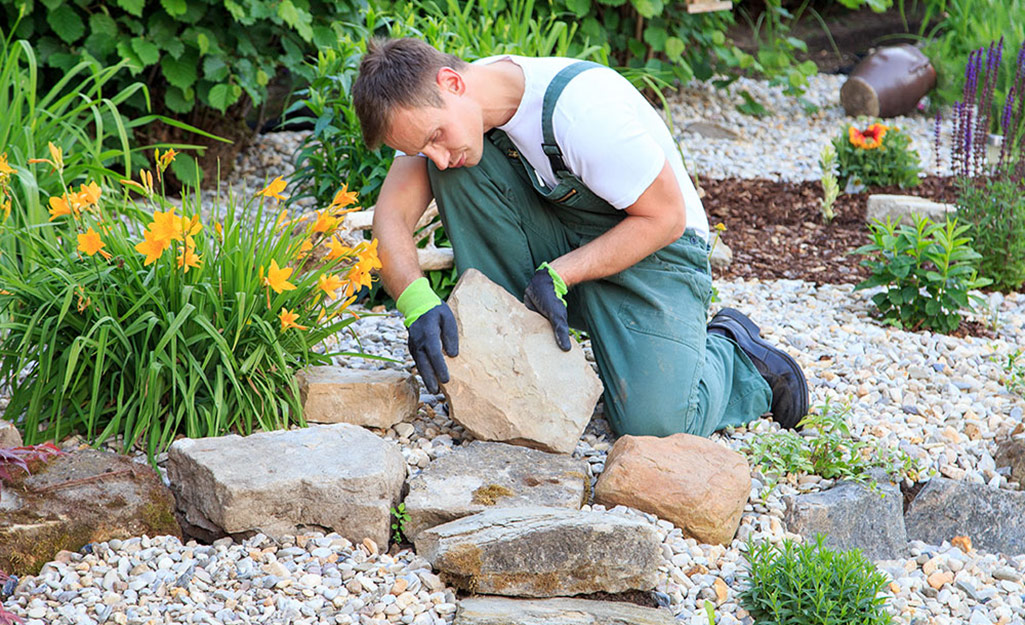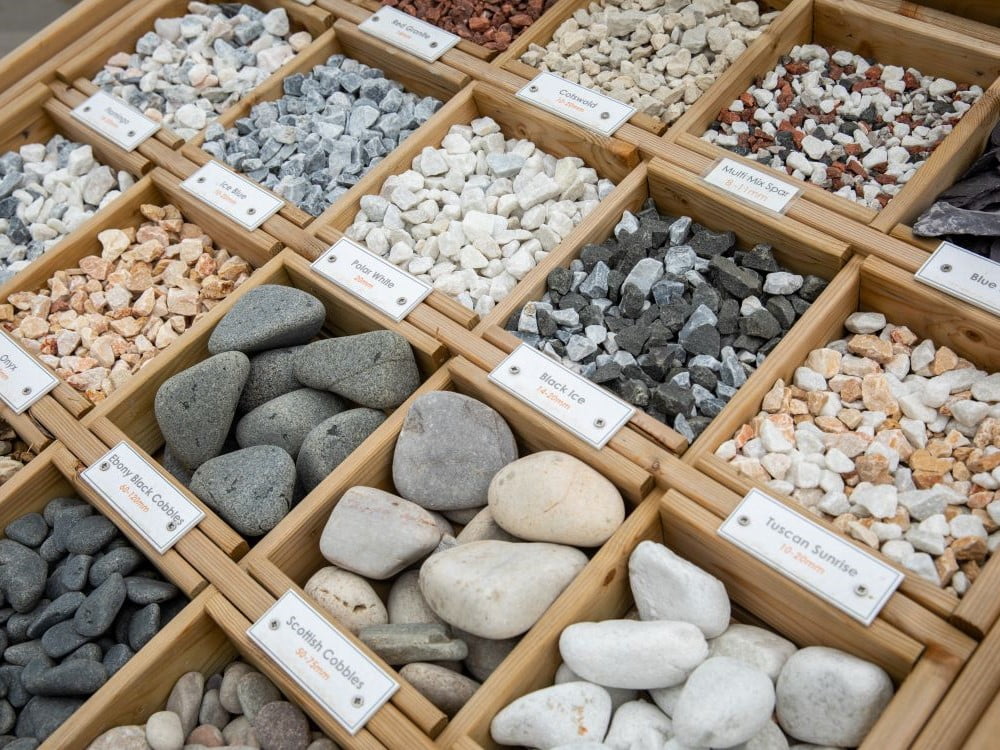When it comes to landscaping, the choices can be overwhelming. One of the most charming and versatile elements you can include in your outdoor space is decorative stones. In my own journey as a gardening enthusiast, I’ve experimented with various types of decorative stones, discovering their transformative power and aesthetic appeal. This comprehensive guide will explore everything you need to know about decorative stones for landscaping, from types and benefits to practical tips for their use in your garden.
Table of Contents
- Types of Decorative Stones
- Benefits of Decorative Stones
- How to Use Decorative Stones in Landscaping
- Comparing Different Decorative Stones
- Frequently Asked Questions
Types of Decorative Stones
Understanding the various types of decorative stones available can help you make informed decisions that suit your garden style and needs. Here are some popular options:
1. River Rocks
River rocks bring a natural, earthy feel to any landscape. They are smooth, rounded stones that can vary in size and color. I’ve used them in my garden pathways, and they provide excellent drainage as well.
2. Pebbles
Small and often colorful, pebbles can be used as ground cover or in decorative features like fountains. Their variety in color and shape makes them perfect for adding texture to your garden design.

3. Crushed Stone
Crushed stone is an affordable option that can serve multiple purposes, from driveways to garden beds. It comes in various sizes and colors, allowing for customization.
4. Slate
Slate stones are a popular choice for patios and walkways due to their flat surface and elegant appearance. They can be used in dry river beds or as decorative edging around flower beds.

5. Granite Stones
Granite is a durable, heavy stone that adds a luxurious appearance to your landscaping. It can be used in large boulders or crushed into smaller pieces.
6. Lava Rocks
These light, porous rocks are perfect for adding a unique aesthetic to gardens, especially in southwestern or desert-themed landscapes. Lava rocks are also great for improving soil drainage.

Summary of Types of Decorative Stones
| Type | Characteristics | Best Used For |
|---|---|---|
| River Rocks | Smooth, rounded, natural | Pathways, drainage |
| Pebbles | Small, colorful | Ground cover, decorative features |
| Crushed Stone | Affordable, versatile | Driveways, garden beds |
| Slate | Flat, elegant | Patios, walkways |
| Granite Stones | Durable, luxurious | Boulders, decorative accents |
| Lava Rocks | Light, porous | Soil drainage, unique aesthetics |
Benefits of Decorative Stones
Incorporating decorative stones into your landscaping has numerous advantages. Here are some key benefits I’ve experienced firsthand:
.jpg)
1. Aesthetic Appeal
Decorative stones can elevate the look of any yard. Their natural color variations and textures add visual interest and beauty.
2. Low Maintenance
Unlike traditional gardens that require regular upkeep, decorative stones need minimal maintenance. They don’t need watering, mowing, or pruning.

3. Versatility
These stones can be used in various applications, including ground cover, as mulch, in pathways, or even as features in water gardens.
4. Weed Control
Using decorative stones can minimize weed growth, especially when combined with landscaping fabric underneath. This has saved me countless hours in the garden.

5. Soil Moisture Retention
In addition to aesthetic benefits, decorative stones can help retain soil moisture, reducing the frequency of watering needed for plants.
Pros and Cons of Decorative Stones
| Pros | Cons |
|---|---|
| Low maintenance | Can be heavy and difficult to move |
| Enhances beauty | May be costly depending on type |
| Versatile use | Can retain heat, affecting nearby plants |
| Weed control | Can shift over time, requiring adjustments |
| Soil moisture retention | Limited color and texture options in some categories |
How to Use Decorative Stones in Landscaping
Now that we’ve explored various types and benefits of decorative stones, let’s dive into how you can effectively use them in your landscaping.
1. Create Pathways
Using decorative stones like pebbles or crushed stone can create beautiful and functional pathways. Lay down some landscaping fabric, add a border, and fill with your chosen stone to create a durable path that enhances your garden’s charm.
2. Accent Features
Consider using larger stones as accent features in your garden. For instance, positioning a few beautifully shaped granite boulders can serve as focal points in a flower bed or around a water feature.
3. Decorative Edging
Using slate or river stones as edging around gardens or beds not only creates a clean look but can also help contain soil and mulch.
4. In Container Gardening
Adding decorative stones on top of soil in pots can improve drainage and assist in moisture retention for your plants.
5. Mulching
Instead of using traditional mulch, opt for crushed stone as ground cover for your plants. It can be visually appealing while providing the same benefits as organic mulch.
Comparing Different Decorative Stones
As we move forward, let’s compare some of the most common decorative stones based on specific features.
| Type | Average Cost per Bag | Weight | Best Use Cases |
|---|---|---|---|
| River Rocks | $5-$10 | Heavy | Pathways, drainage |
| Pebbles | $4-$8 | Light | Ground cover, decorative features |
| Crushed Stone | $3-$7 | Medium | Driveways, garden beds |
| Slate | $10-$20 | Medium to Heavy | Patios, walkways |
| Granite Stones | $15-$25 | Heavy | Boulders, decorative accents |
| Lava Rocks | $6-$12 | Medium | Soil drainage, unique aesthetics |
Frequently Asked Questions
What are decorative stones?
Decorative stones are landscaping materials used to enhance the visual appeal of outdoor spaces. They come in various sizes, shapes, and colors.
How do I choose the right decorative stones for my garden?
Consider the overall aesthetic you want to achieve, the function of the stones, and how they complement other landscape elements. It’s also useful to think about the size and weight of the stones based on your project.
Can decorative stones be used for bonding with other materials?
Yes, decorative stones can be used in conjunction with other materials. For instance, using crushed stone can provide a stable base for pavers or tiles in patios and walkways.
Do decorative stones retain heat?
Some stones, particularly darker ones, can retain heat and impact nearby plant growth during hot weather. It’s best to place heat-retaining stones wisely, considering the needs of other plants.
How do I maintain decorative stone features?
To maintain decorative stone features, regular raking and occasional washing to remove debris or dust are usually sufficient. Check for any shifting stones and correct their placement as needed.
Conclusion
Decorative stones can be a stunning addition to any landscape, providing beauty, function, and ease of maintenance. Whether you’re looking to build paths, create beautiful garden beds, or add texture with pebbles, the right decorative stones can truly transform your outdoor space. With thoughtful selection and application, your garden can become a personal oasis that reflects your style and passion for nature. Happy landscaping!